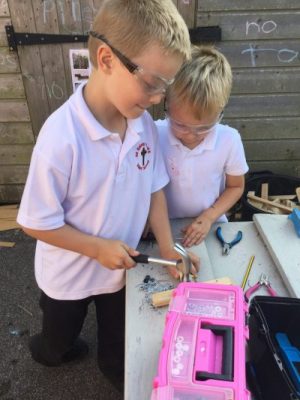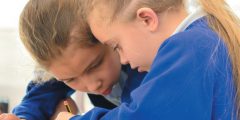Planning for possibilities
February 17, 2021
In this post, Catherine Gripton considers planning and how ‘planning for possibilities’ might support beginning and early career teachers to plan more holistically for learning. Learning to plan One of the first challenges for beginning teachers on an initial teacher education course is learning to plan. Many beginning and early career teachers will be grappling …
Foundation for What? Issues in EYFS continuity and an integrated pedagogy for KS1
January 14, 2021
In this post, Philip Hood and Joanna Redfern reflect on a journey towards continuity between EYFS and KS1 across two linked C of E Infant schools and offer a model for an integrated pedagogical response. The problem of continuity This ‘learning journey’ spans several years. It was first reported on in a journal article (Hood …
Classroom practice in 2020: adaptation and opportunity?
October 22, 2020
In this post, Rupert Knight reflects on some of the changes to Primary classroom practice emerging this school year. Taking stock at the halfway point of this very unusual term, what are the questions that might arise as the school year proceeds? Not the usual start to a school year… When children and teachers returned …
Storytelling in the classroom: the teacher’s role
September 21, 2020
In this month’s post, Mike Payton builds on our previous blogs on oracy and children’s literature by considering the power of storytelling as a fundamental skill in the primary classroom Teachers (and PGCE tutors) quickly learn that with changes of government, or education secretary, will come changes to the curriculum, from slight tinkering to radical …
Staying centred: what are a teacher’s core practices?
May 22, 2020
In this post, Rupert Knight considers the idea of core practices for teachers and how they might help us understand the essence of a teacher’s role, particularly at a time of extraordinary change. What do we mean by a ‘core’ for teachers? Closely following the Early Career Framework for teachers and using much of the …
Tuning in to expert teachers: seeing beneath the surface of classroom practice
November 13, 2019
In this post, Rupert Knight considers what we mean by teacher expertise and how we might get better at looking for this in action. Speaking in an October 2019 article in the TES about the current upsurge of interest in evidence-informed practice, Mel Ainscow advised caution in the use of evidence by teachers, arguing that: …
Modelling: some thoughts on thinking aloud
May 23, 2019
In this post, Rupert Knight reflects on the value of modelling as a ‘core practice’ and the live, thinking aloud component of this in particular. In every teacher’s repertoire, there are a number of specific pedagogical practices that are fundamental to almost any subject taught. They might include, for example, explaining a new concept or …
What does continuous provision mean to you?
April 23, 2019
With the perpetually increasing pace of change in education it feels hard to keep up with new initiatives. Often when we do catch our breath we realise we haven’t fully grasped what the new jargon means or how we should be improving practice, sometimes we see repeated patterns and at other times we catch up …
The Importance of a Daily Whole-Class Read – Enjoying a Book for a Book’s Sake
February 18, 2019
Past posts in this series have discussed picture books in the primary classroom and high quality children’s literature. In this new post Sally Betteridge considers the benefits of reading to your class. The joy and wonder on their faces as you capture them in the imaginary world of the story – they are hooked on …
A Dialogic stance
January 16, 2019
Building on an earlier post in this series which looked at oracy, Rupert Knight considers here the concept of the dialogic classroom, how it relates to a culture valuing spoken language more generally and how this might serve a wider purpose. Oracy as a foundation A previous post in this series explored the concept of …










